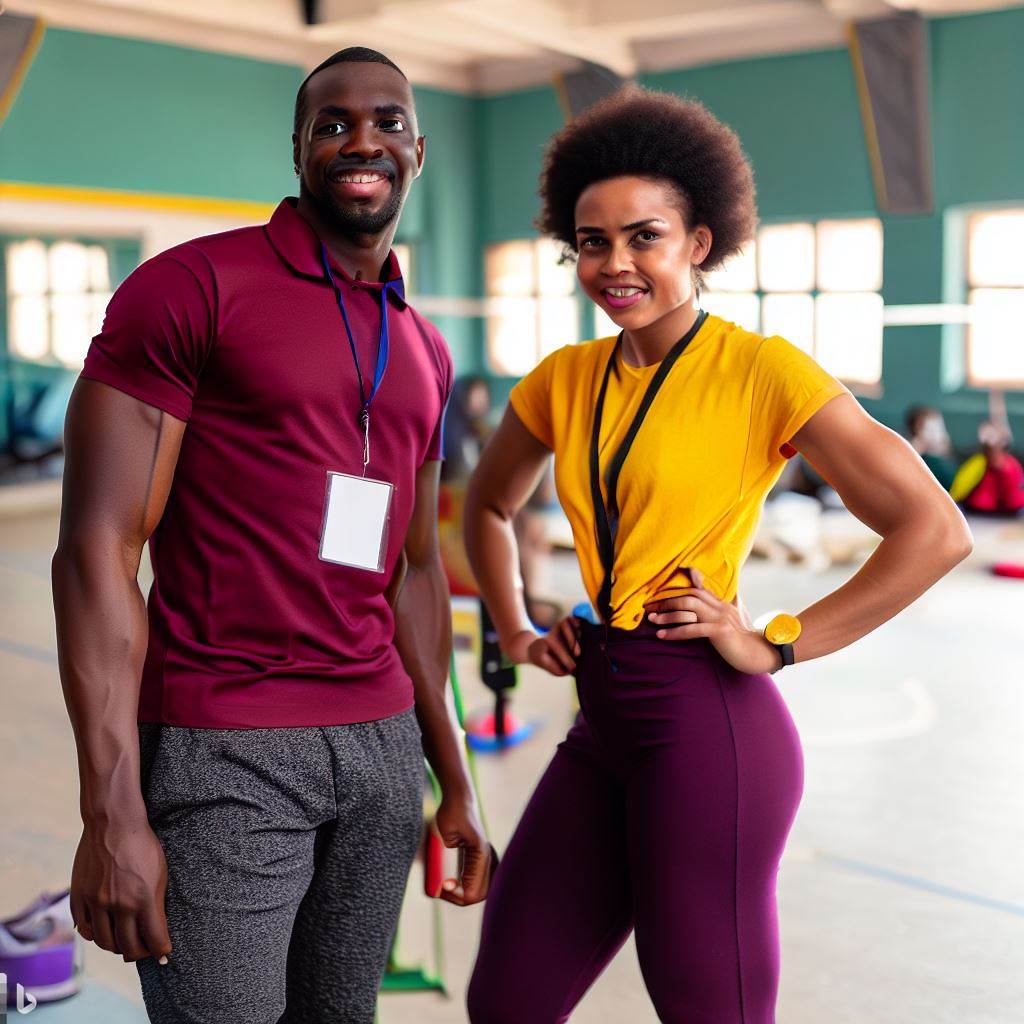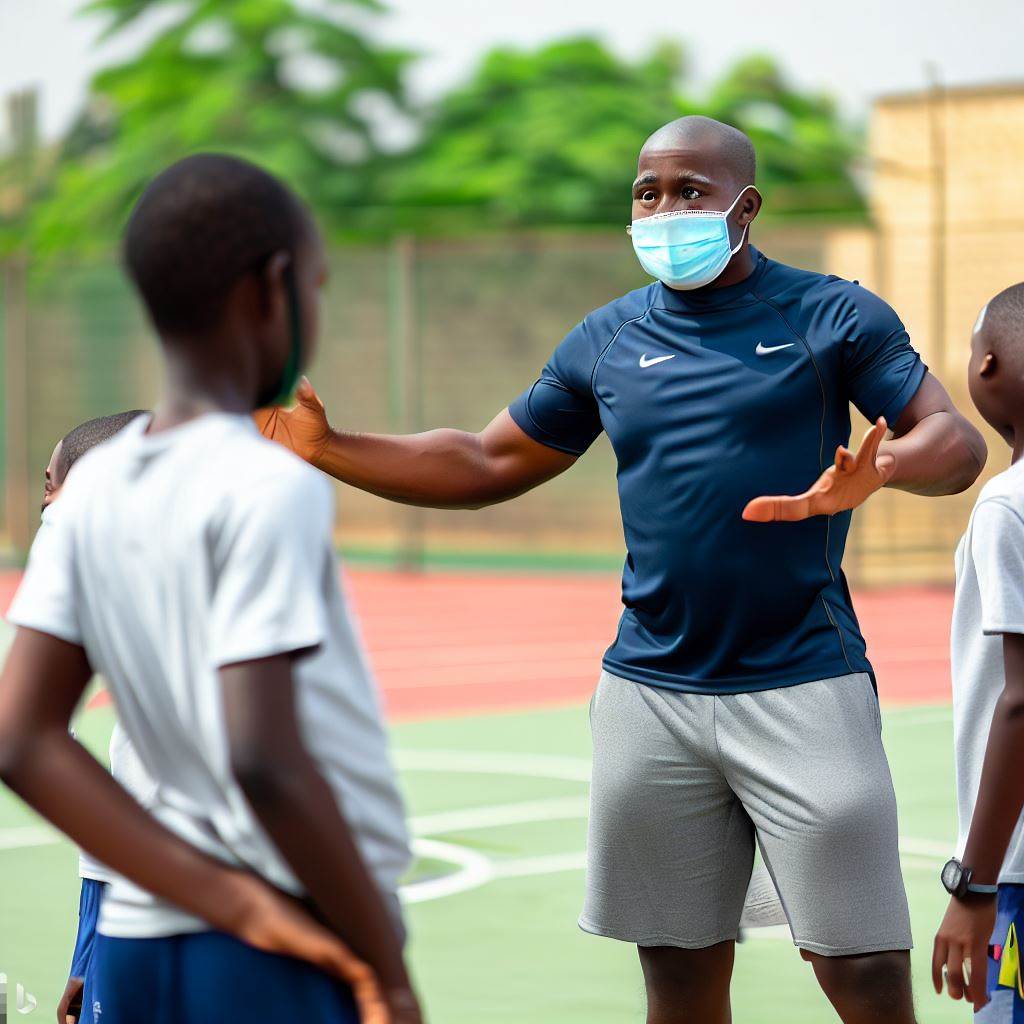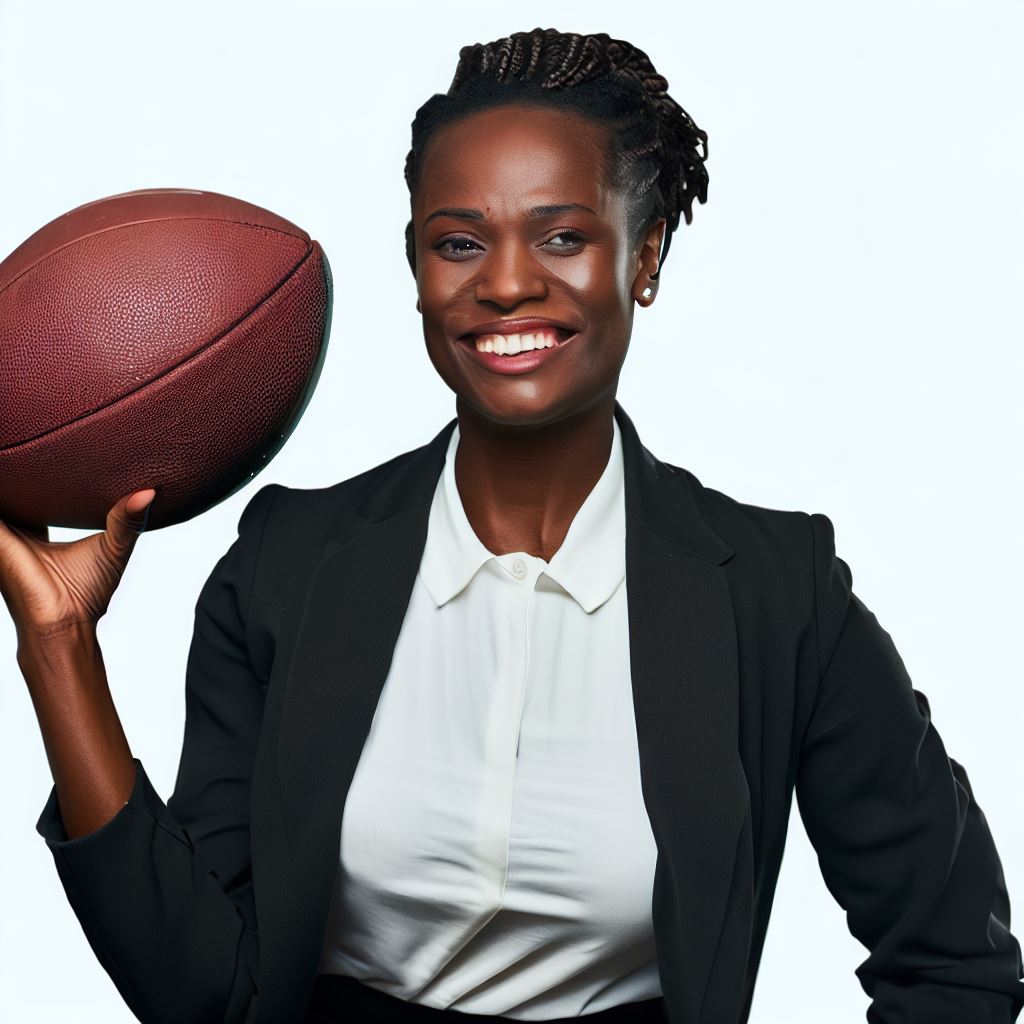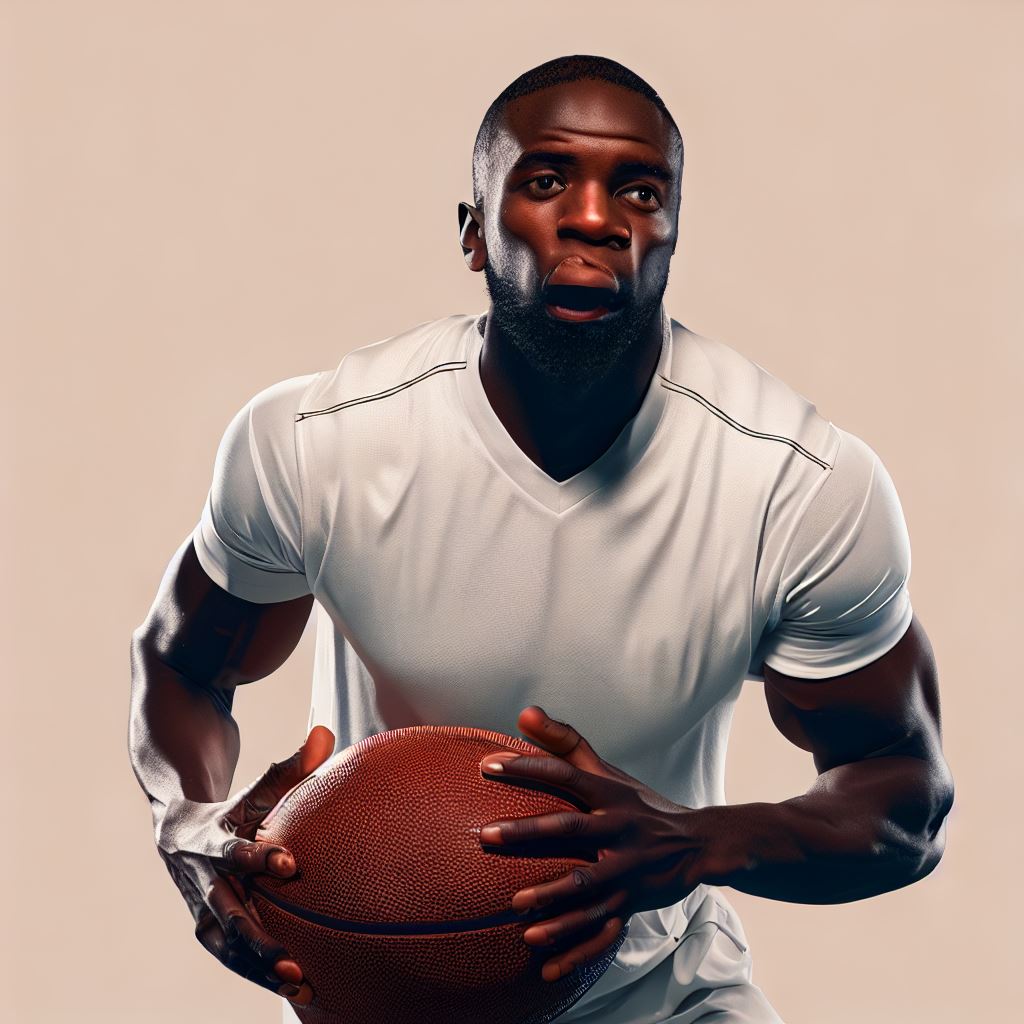Introduction
Physical education teaching is of great importance in Nigeria as it contributes to the holistic development of individuals.
It plays a crucial role in promoting physical health, mental well-being, and social skills.
Physical education classes provide opportunities for students to engage in various forms of exercise and sports, which helps in maintaining a healthy lifestyle.
Additionally, it also helps in developing motor skills, coordination, and overall physical fitness.
The topic of gender roles in physical education teaching in Nigeria is worth exploring due to its impact on social and gender equality.
It examines the different roles, expectations, and opportunities provided to male and female students in physical education classes.
Historically, physical education has been dominated by traditional gender norms and stereotypes, often favoring male students.
However, there is a growing need to challenge and address these gender biases and ensure equal opportunities for both male and female students in physical education teaching.
In this article, we will delve deeper into the gender roles in physical education teaching in Nigeria and explore the various factors that influence the experiences and participation of male and female students.
By understanding the challenges and opportunities within this context, we can work towards creating a more inclusive and equitable physical education environment for all students in Nigeria.
Stay tuned for the upcoming sections that will shed light on the different aspects of this topic.
Historical Perspective on Gender Roles in Nigerian Society
These traditional gender roles created barriers for women wanting to pursue physical education teaching.
Women were often discouraged from participating in sports and physical activities, which limited their understanding and experience in the field.
This lack of exposure affected their career opportunities and advancement in the profession.
Furthermore, societal expectations of women being submissive and obedient played a role in limiting their authority and influence as physical education teachers.
Men were given more privileges and decision-making power, which often hindered female teachers from implementing inclusive and progressive teaching methods.
Religious and cultural beliefs also reinforced traditional gender roles, further discouraging women from pursuing physical education teaching.
These deeply ingrained beliefs perpetuated the idea that physical education was not suitable for women’s delicate nature, thus restricting their participation and advancement in the field.
However, over the years, there has been a gradual shift in gender roles and perceptions in Nigerian society.
With the increasing influence of western education and globalization, there has been a growing recognition of the importance of gender equality and inclusivity.
Today, more women are breaking barriers and actively pursuing careers in physical education teaching.
The Nigerian government and educational institutions are also implementing policies and programs to promote gender equality in education, providing equal opportunities and support for women in the field.
This shift in gender roles and perceptions is gradually transforming the landscape of physical education teaching in Nigeria.
Female physical education teachers are now more visible and have the opportunity to make significant contributions to the development of physical education in the country.
In essence, traditional gender roles in Nigerian society have historically influenced physical education teaching.
However, with changing societal attitudes and increased support for gender equality, there is hope for a more inclusive and progressive future in the field of physical education in Nigeria.
Read: Continuing Education for PE Teachers in Nigeria
Current State of Physical Education in Nigeria
Current physical education curriculum in Nigeria
- The current physical education curriculum in Nigeria focuses on basic sports skills and general fitness.
- It includes activities like running, jumping, throwing, and basic team sports.
- The curriculum also emphasizes the importance of regular exercise for overall health and well-being.
- There is a lack of specific guidelines and standards for physical education curriculum implementation.
- Overall, the curriculum does not adequately address the diverse needs and interests of all students.
Gender disparities in participation rates and opportunities
- Girls in Nigeria face significant gender disparities in participation rates and opportunities in physical education.
- Many schools prioritize boys’ participation and provide them with better resources and facilities.
- Girls often face cultural and social barriers that discourage their involvement in physical activities.
- Lack of appropriate facilities and equipment for girls is a major issue in many schools.
- Girls are often discouraged from participating in certain sports traditionally considered “masculine.”
- As a result, girls’ participation rates in physical education are significantly lower than boys’.
- There is a need for more inclusive and gender-sensitive physical education policies and practices in Nigeria.
- Efforts should be made to create equal opportunities and promote girls’ participation in physical education.
- By addressing the gender disparities, the overall physical education experience can be improved for all students.
Basically, the current state of physical education in Nigeria is characterized by a curriculum that focuses on basic sports skills and general fitness, but lacks specific guidelines and standards for implementation.
This curriculum does not adequately address the diverse needs and interests of all students.
Moreover, there are significant gender disparities in participation rates and opportunities, with girls facing cultural and social barriers that discourage their involvement in physical activities.
Efforts should be made to create a more inclusive and gender-sensitive physical education environment in Nigeria, ensuring equal opportunities for all students.
Read: A Day in the Life of a Nigerian PE Teacher: A Profile
Factors Influencing Gender Roles in Physical Education Teaching
Social and cultural norms
- Traditional perceptions of masculinity and femininity in Nigeria
- The impact of these perceptions on the teaching and learning of physical education
Lack of female representation in physical education
- Reasons behind the underrepresentation of female physical education teachers
- The impact of gender imbalance on students’ learning experiences
Policy and institutional support
- The presence (or absence) of policies promoting gender equality in physical education
- The role of educational institutions in breaking gender stereotypes
Read: Physical Education in Nigeria: Urban vs Rural Schools

Empowering Girls in Physical Education Teaching
Promoting inclusive physical education classrooms
- Encourage mixed-gender activities and team formations in physical education classes.
- Create a safe and supportive environment that respects and values the abilities of all students.
- Offer diverse exercise options that cater to different interests and abilities.
- Provide equal opportunities for both genders to participate in class discussions and decision-making processes.
- Include diverse representations of successful athletes and role models from both genders in teaching materials.
Encouraging female participation in sports
- Highlight the numerous benefits of sports participation for girls, such as improved physical fitness and mental well-being.
- Showcase the positive impact of sports on girls’ overall development, including increased self-confidence and leadership skills.
- Design inclusive sporting activities that accommodate varying skill levels and interests.
- Implement strategies to address cultural biases and stereotypes that discourage girls from participating in sports.
- Collaborate with parents, community organizations, and local sports clubs to provide additional resources and opportunities for girls to engage in sports.
- Offer after-school programs and extracurricular activities that focus on promoting female participation in physical education and sports.
- Organize workshops and seminars to educate teachers and parents about the importance of equal opportunities for girls in sports.
- Partner with female athletes and sports professionals to serve as mentors and inspire girls to pursue sports.
- Recognize and celebrate the achievements of female athletes at school events and award ceremonies.
Overall, promoting gender inclusivity and empowering girls in physical education teaching in Nigeria requires creating an environment that values and supports the participation of all students.
By providing equal opportunities, fostering an inclusive atmosphere, and encouraging female participation in sports, we can help girls develop confidence, leadership, and vital life skills through physical education.
Read: Teaching Sports in Nigeria: A PE Instructor’s Perspective
Challenges and Potential Solutions
Recognize barriers that hinder gender equality in physical education teaching
- Lack of access to quality physical education for girls due to societal norms.
- Absence of female role models in the field of physical education.
- Gender stereotypes that discourage boys and girls from participating in certain activities.
- Preconceived notions about femininity and masculinity affecting the perception of physical education.
- Insufficient resources dedicated to promoting gender equality in physical education.
Offer potential solutions to address these challenges
Enhancing teacher training programs
Integrate gender sensitivity training to educate teachers on promoting gender equality.
Include inclusive teaching practices that cater to the needs of both girls and boys.
Encourage teachers to challenge gender stereotypes through inclusive language and activities.
Provide resources and support for professional development opportunities to enhance teaching skills.
Advocating for policy changes that prioritize gender equality
Develop and implement policies that ensure equal access to physical education for all students.
Allocate sufficient funding to support initiatives aimed at promoting gender equality in physical education.
Encourage the inclusion of gender equality in official curriculum guidelines and standards.
Establish monitoring and evaluation mechanisms to track progress and identify areas for improvement.
These potential solutions can help address the challenges faced in achieving gender equality in physical education teaching in Nigeria.
By recognizing the barriers and actively working towards their elimination, both teachers and policymakers can create an inclusive and supportive environment for all students.
Explore Further: The Future of Assistant Athletic Training in Nigeria
Conclusion
Addressing Gender Roles
In Nigeria, dismantling gender roles in physical education is crucial. It fosters inclusivity, empowering both genders.
Promoting gender equality in this field breaks stereotypes, encouraging girls and boys to explore their potential freely.
Equity in physical education teaching enhances the overall quality of education, promoting holistic development.
Collective Efforts
To ensure equal opportunities, Nigeria needs a unified approach.
- Policy reform: Update curriculum and policies to promote gender equality.
- Training: Provide gender-sensitive training for PE teachers.
- Awareness: Promote gender equity through campaigns and workshops.
- Inclusion: Encourage girls’ participation in sports and physical activities.
- Evaluation: Regularly assess progress and adapt strategies accordingly.
Addressing gender roles is paramount for Nigeria’s physical education system. Collective efforts will pave the way for an inclusive and equitable future.




